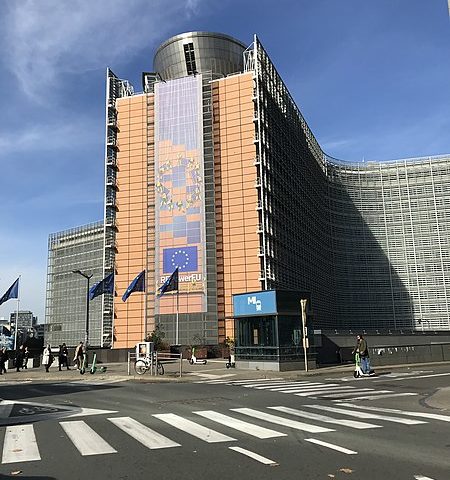The European Commission has approved, under EU State aid rules, a €158 million Polish measure to support LOTOS Green H2 sp. z o.o, a special purpose vehicle ultimately owned by PKN Orlen SA, in the production of renewable hydrogen to be used in the refinery production processes. The measure will contribute to the achievement of the EU Hydrogen Strategy and the European Green Deal targets, while helping end dependence on Russian fossil fuels and fast forward the green transition in line with the REPowerEU Plan.
The Polish measure
Poland notified to the Commission its plan to support LOTOS’s Green H2 project to produce renewable hydrogen through water electrolysis (i.e. a process of using electricity to decompose water into oxygen and hydrogen gas) instead of through steam methane reforming using natural gas. This renewable hydrogen will be used in the fuel production processes in PKN Orlen’s refinery in Gdańsk.
The aid, which will take the form of a direct grant of €158 million, will support the installation of an electrolyser with a capacity of 100 MW, as well as the construction of 50 MW photovoltaic power plant and 20 MWh battery storage. The electrolyser is expected to start operating as of 2027 and to gradually increase its production up to 13,600 tonnes of renewable hydrogen per year.
Once completed, the project is expected to avoid the release of a total of 2.5 million tonnes of carbon dioxide over the project lifetime. In addition, to maximise the reduction of greenhouse gas emissions, hydrogen will be produced solely with electricity generated from renewable sources.
The Commission’s assessment
The Commission assessed the measure under EU State aid rules, in particular Article 107(3)(c) of the Treaty on the Functioning of the European Union (‘TFEU’), which enables Member States to support the development of certain economic activities subject to certain conditions, and the Guidelines on State aid for climate, environmental protection and energy 2022 (‘CEEAG’).
Poland selected the Green H2 project, in the context of an open call, to form part of an IPCEI on hydrogen technologies and systems. The Green H2 project intends to reduce greenhouse gas emissions in the energy-intensive and hard-to-abate refinery sector. As aid for the reduction of greenhouse gas emissions, including through support of decarbonisation projects, is one of the main categories of aid allowed by the CEEAG, the measure was best suited for assessment under these guidelines, rather than as part of said IPCEI.
The Commission found that:
• The measure facilitates the development of an economic activity, in particular the production of renewable hydrogen. At the same time, it supports the objectives of key EU policy initiatives such as the European Green Deal, the EU Hydrogen Strategy and the REPowerEU Plan.
• The aid has an ‘incentive effect’, as the beneficiary would not carry out the investments in renewable hydrogen production without the public support.
• The measure has a limited impact on competition and tradewithin the EU. In particular, it is necessary and appropriate to promote the production of renewable hydrogen. In addition, it is proportionate, as the level of the aid corresponds to the effective financing needs.
• The measure has sufficient safeguards to ensure that undue distortions of competition are limited. If the project turns out to be very successful, generating extra net revenues, the beneficiary will return part of the aid received to Poland (claw-back mechanism). Furthermore, the beneficiary will share the technical know-how gained through the project with other European industry players. Finally, the project is subject to monitoring to verify its progress towards the objectives of CO2 emission savings.
• The aid brings about positive effects that outweigh any potential distortion of competition and trade in the EU.
On this basis, the Commission approved the Polish measure under EU State aid rules.





